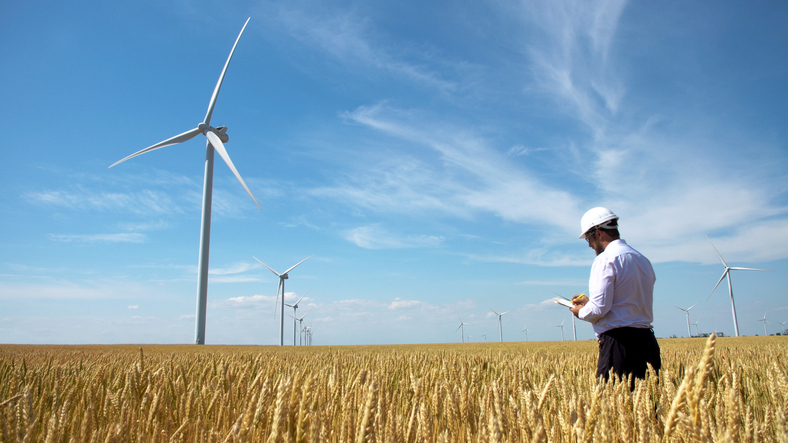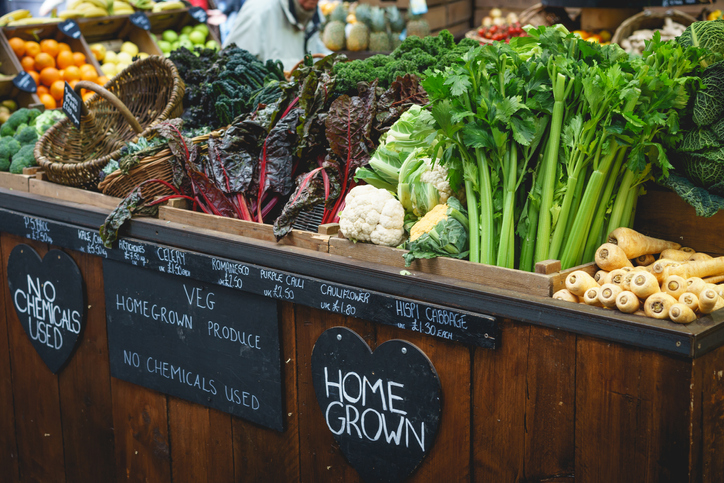9 startups driving the green revolution
Category: Uncategorized
With the general election fast approaching, the UK’s major political parties have now launched their manifestos. For the first time, policies around the environment and climate change have been placed front and centre, with all major parties putting forth transition processes to carbon net-zero (within a varying number of decades).
Giving unprecedented focus to the climate crisis, Labour have proposed a “green industrial revolution” and given it pride of place in the party document. The proposal includes a £250b “Green Transformation Fund” dedicated to renewable and low-carbon energy transport, biodiversity and environmental restoration with a Local Transformation Fund in each of the English regions and devolved nations. The party has also set out policies to increase renewable energy production, reduce waste and launch a “Climate Apprenticeship programme”.

The Conservatives have also pledged investment into clean energy solutions and green infrastructure to reduce carbon emissions and pollution, with the aim of establishing ‘the most ambitious environmental programme of any country on Earth’.
Promising to establish Wales as the ‘cradle of the global green revolution’, Plaid Cymru have put special emphasis on environmental policies with a greener homes programme, a national inventory of green energy potential, aims to decarbonise transport as well as promoting community ownership of renewable energy.
Whilst the politicians continue to battle it out, we’ve profiled some of the young startups who are working to increase sustainability across the energy and food sector, no matter who gets into Number 10.
CleanTech startups of the future
G-Volution
Welsh company G-Volution aims to offer lower carbon and emission solutions in transport and power generation, at a more affordable price. It was formed as a response to tackle global warming, with a unique dual fuel technology concept incorporated to reduce carbon emissions. G-Volution has developed patented technology including the G-Volution Optimiser, which is used to control the delivery of secondary fuels, allowing two or more fuels to combust simultaneously. The Optimiser also aims to manage carbon emissions, delivering the most efficient, yet cost effective dual fuel combustion.
Operating since 2005, G-Volution has now secured £2.38m of equity and loan finance over five rounds, as well as receiving seven grants with a combined worth of £1.81m. The latest of these, a £322k Manufacturing, Materials and Mobility grant, was awarded in September 2019.
C-Capture
C-Capture, a spinout from the chemistry department at the University of Leeds, designs solvent systems which aim to remove carbon dioxide from gas streams. The release of carbon dioxide, a greenhouse gas, into the atmosphere is a main contributor to global warming. C-Capture’s technology addresses this issue by ‘scrubbing’ and removing carbon dioxide from methane gas streams. When applied on a larger scale, such as within power stations or other industrial gas emitters, C-Capture’s technology and solvent systems selectively detect and capture carbon dioxide emissions as they pass through. This captured carbon dioxide can be retained, stored and transported, with potential uses for it in other manufacturing processes. In addition to £3.67m of equity funds raised, C-Capture also received a £104k Innovate UK grant in 2018.
Bulb
Bulb sells gas and electricity, derived from environmentally friendly sources, to business and domestic customers. The CleanTech company supplies 100% renewable electricity, originating from a mixture of generation types, including wind, solar and hydro. Bulb has direct relationships with independent renewable generators across the UK and tries to purchase most of their electricity from these generators. Bulb also provides 100% carbon neutral gas, 10% of which is produced from renewable sources like farm or food waste.
Bulb’s provision of gas and electricity revolves around three core pillars. The first is simplicity, with potential customers able to quickly switch to Bulb and all customers being offered a simple, variable tariff. Bulb also aims to provide cheaper energy by investing in technologies that reduce their cost of operations. These savings are passed onto their customers, with Bulb being 17% cheaper than Big Six standard deals. Finally, Bulb emphasises making energy greener through its commitment to providing 100% renewable electricity and carbon neutral gas.
Released earlier this year, Beauhurst’s Unicorn report named Bulb as a ‘soonicorn’ – a company that we expect to reach a $1b valuation in the near future. The company has secured £65.3m of finance over six funding rounds since being founded in 2014.

Origami Energy
Origami Energy has developed a platform which helps energy companies manage the energy flow between physical sites. Origami has recognised that the transition towards renewable energy sources has resulted in energy systems being more complex and uncertain. Thus, its technology has been designed to help the energy industry monitor and optimise anything that uses, stores or generates electricity.
To achieve this, Origami offers three products. Origami Connect aims to connect anything that generates or consumes power through one platform, thus providing users with all the information needed to make smarter decisions. Origami Control offers users real-time and remote control over energy assets, ensuring energy suppliers keep up to pace with market changes, through a single platform. Origami Optimize simplifies the management of large portfolios, allowing energy suppliers to track complex assets over a variety of markets.
Since being founded in 2013, Origami have already reached scaleup status and raised £35.8m over three funding rounds. They are backed by Cambridge Innovation Capital (CIC) and Octopus Ventures, among others. Their latest pre-money valuation stands at £42.2m (May 2018).
Tidal Lagoon Power
Tidal Lagoon Power develops tidal lagoons – a method of producing electrical energy by converting power from the change in tides. Tidal Lagoon Power was initially created to utilise the natural power created from the rise and fall of the tides. This power source is one of the cheapest electricity sources amongst new power stations. With tidal waves being entirely predictable and occurring throughout the year, the power provided by tidal lagoons offers an inexpensive, sustainable and reliable power source. Tidal Lagoon Power is currently aiming to power 30% of UK homes by developing six tidal lagoons. They are also pursuing several overseas projects, since being given permission to build its first power plant in Swansea Bay, in Wales.
In early 2016, Tidal Lagoon Power secured a £2.03m equity investment at a £30m pre-money valuation, backed by Gupta Family Office.

Startups changing the ways we eat
Vertical Future
Vertical Future is a food technology company aiming to improve health within cities by developing a range of technologies that build better food production and supply systems.
Vertical Future currently has two production sites in London, with a further site planned for 2020. At these sites, Vertical Future produces high-quality, ethical food, utilising smart automation and process flow in the production process. Vertical Futures has launched MiniCrops, its Controlled Environment Agriculture initiative, in 2017. MiniCrops provide daily, on-demand and fresh produce that is pesticide-free. It is used in over 100 restaurants in London and by thousands of households, partnering with food brands and restaurants such as Sartoria, Tom’s Kitchen and Kaleido.
The startup has raised a total of £4.29m within just three years of inception. Their latest round of £4m was closed in October of this year and was led by Earthworm.
OLIO
OLIO develops an app that allows individuals and businesses to list food items close to their sell-by date for locals to pick up free-of-charge, in order to reduce food wastage. The OLIO app enables users to list an item by uploading a photo of the product to the app and choosing who to share the product with. Similarly, listings of items can be browsed and requested by interested parties. An important feature of this process is that all items are offered on OLIO for free. OLIO’s model aims to address the issue of food wastage, where they have estimated that more than 50% of food waste occurs within homes. OLIO has developed a successful model so far and have now added a non-food section for users, where users can share non-food items.
Founded in 2015, OLIO have raised £7.35m over three funding rounds so far. Investors include Accel, Octopus Ventures and Silvergate Investments. Earlier this year the company attended Tech Nation’s Upscale accelerator, as well as London & Partner’s Go to Grow – Urban Infrastructure programme, as part of the Mayor’s International Business Programme.

Transcend Packaging
Transcend Packaging manufactures sustainable packaging products for the food industry. Aiming to champion plastic-free packaging, Transcend collaborates with product developers, material experts and innovators to manufacture its sustainable packaging. Examples of efforts undertaken by Transcend to achieve this include production of paper straws, – in efforts to eliminate single-use plastic straws – sourcing sustainable materials and engaging in digital printing practices – to ensure brands order the exact amount they need without excess waste. Transcend has secured a deal with McDonalds in 2018 to provide them with paper straws. More recently, Transcend acquired Leeds-based company BioStraw in 2019, which will allow Transcend to bring new products to the market.
Transcend have raised £5.76m over three funding rounds. Their latest and largest round of £4.31m was backed by Close Brothers, at a pre-money valuation of £10.9m.
Winnow
Winnow develops artificial intelligence tools to help organisations reduce food waste in their operations. Winnow’s AI tools are mainly used within commercial kitchens, where a four-stage process is undertaken. Firstly, food waste is tracked, with photographs of waste detected and weighed through the ‘Winnow Vision’ application. The machine learning component incorporated within the application eventually recognises and records the wasted food. Users then receive regular reports, highlighting the value, volume and environmental impact of the waste. Based on this analysis, kitchens are able to make cost savings. Winnow has already been incorporated as a food management solution for hotels, casinos and contract catering, with large brands such as IKEA, Hilton and Costa cruises adopting Winnow worldwide.
Founded in 2013, Winnow have raised £21.4m, the latest of which was announced in October 2019. Winnow have partaken in a total of four accelerator programmes, joining OLIO at Tech Nation’s Upscale and London & Partners Go to Grow Programme.
Discover the UK's most innovative companies.
Get access to unrivalled data on all the businesses you need to know about, so you can approach the right leads, at the right time.
Book a 40 minute demo to see all the key features of the Beauhurst platform, plus the depth and breadth of data available.
An associate will work with you to build a sophisticated search, returning a dynamic list of organisations matching your ideal client.